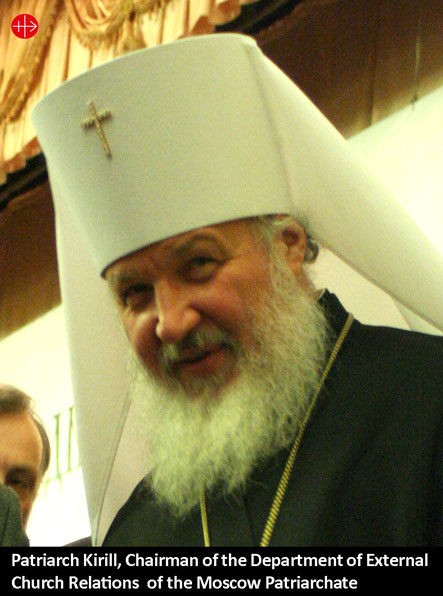CUBA – Historic meeting
Russia Orthodox head to join Pope in asking for end to Christian persecution
The Vatican and the Moscow Patriarchate have both announced that Pope Francis will stop in Cuba on 12 Feb on his way to Mexico to meet with Patriarch Kirill, head of the Russian Orthodox church. This historic meeting, the first ever between a Pope and a Russian Orthodox patriarch, could be the first step towards healing the 1,000-year-old rift between the Western and Eastern branches of Christianity.
A Vatican spokesman said the Pope would hold several hours of private talks with Patriarch Kirill at Havana airport. Following the meeting they are expected to deliver public speeches and sign a joint statement appealing for an end to persecution and killing of Christians in the Middle East.
Pope Francis’ two immediate predecessors, Benedict and John Paul met Istanbul-based spiritual leaders of Eastern Orthodoxy, which split from Rome in 1054. However, those patriarchs largely play a symbolic role as the real influence lies with the wealthy Russian church which incorporates 165 million of the world’s 250 million Orthodox Christians. Both Benedict and John-Paul tried but failed to get Kirill and previous Russian patriarchs to agree to hold talks which could lead to eventual unity between Roman and Orthodox Christians.
Cuban President Raul Castro, who acted as host to Pope Francis in Cuba last year brokered the meeting. This may have been in appreciation of the fact that the Vatican helped establish relations between the United States and Cuba last year.
Realistically, the Cuba meeting cannot be considered purely a religious event but has strong political overtones, especially as Russia is currently at odds with the West over Ukraine and Syria. Russian President Vladimir Putin is closely aligned with the Russian Orthodox Church and Russia’s ambassador to the Vatican, Alexander Avdeyev, was keen to emphasise that the meeting showed Russia could play an important role in shaping Christianity. He stated: “In conditions of Western sanctions, the meeting of the two church leaders is a confirmation of the Christian civilizational role of Russia”.
Casting a shadow across hopes of unity in the near future, Metropolitan Hilarion – a Senior Russian Orthodox cleric – said long-standing differences between the two churches would remain. In particular he referred to the dispute over the activity of the Eastern Rite Catholic church in Ukraine, which is allied with Rome. He said the disagreement in Ukraine was “still on the agenda, and it remains an unhealed and a still bleeding sore thwarting normal relations between the two Churches”. On a more optimistic note he added that the Ukranian dispute was being put aside during the meeting so that Kirill and Francis could work together in denouncing the persecution of Christians in the Middle East by Islamist militants.
The historic meeting was also welcomed by the National Ukrainian Orthodox Church Kyiv Patriarchate. “It seems that Moscow is now looking for all opportunities to restore relations with the civilized world,” said their spokesman Archbishop Yevstratiy Zoria. Stressing that he was only expressing his personal opinion, he added “If the Pope manages to return the Kremlin to the fold of common sense, international law and civilized relations, let God help.”
ACN Malta





